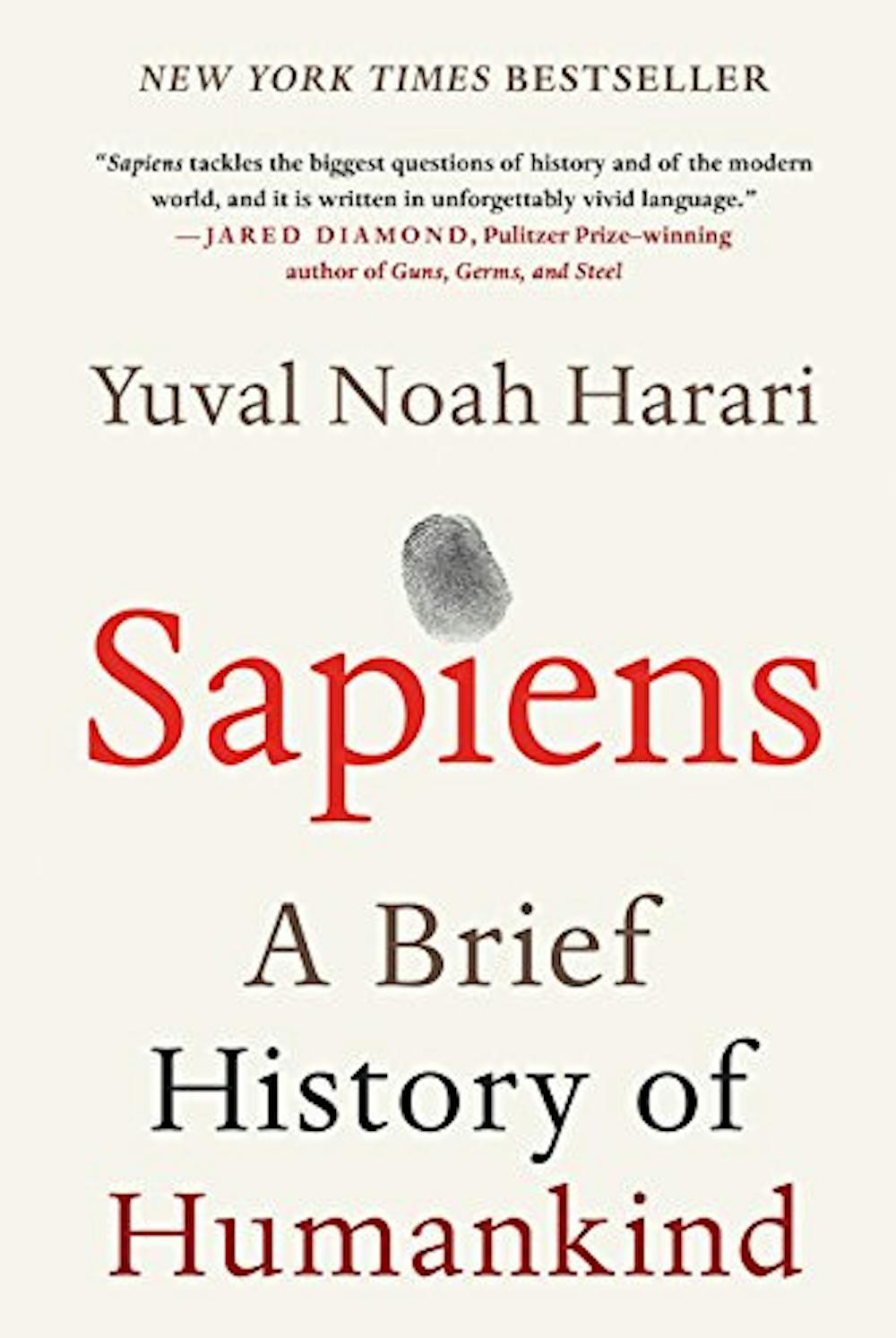Data Services Librarian Ryan Clement is liaison to the Economics, Geography, Philosophy and Sociology & Anthropology departments, as well as serving as Middlebury’s Government Documents Coordinator.
“Sapiens: A Brief History of Humankind” by Yuval Noah Harari, 2015
443 pages
“We have advanced from canoes to galleys to steamships to space shuttles – but nobody knows where we’re going. We are more powerful than ever before, but have very little idea what to do with all that power. Worse still, humans seem to be more irresponsible than ever. Self-made gods with only the laws of physics to keep us company, we are accountable to no one. We are consequently wreaking havoc on our fellow animals and on the surrounding ecosystem, seeking little more than our own comfort and amusement, yet never finding satisfaction.”
- Yuval Noah Harari, “Sapiens: A Brief History of Humankind,” “Afterword”
The What
“Sapiens: A Brief History of Humankind” attempts a grand and challenging experiment: can the full history of Homo sapiens be properly summarized in fewer than 500 pages? The author, Yuval Noah Harari, certainly thinks so. Despite promising a brief history of “humankind” in the book’s subtitle, he’s smart to focus on one species of humankind (Homo sapiens) and their turbulent 70,000-year history.
“Sapiens” begins when our species began to experience the first of many revolutions that Harari highlights: the “cognitive” revolution. Not to be confused with the cognitive revolution in psychology, which was a reaction against behaviorism, this is the period around 70,000 years ago when humanity developed the capacity for imagination. Our newfound ability to talk about things that don’t exist, and to communicate these ideas with others in our group, led to the “collective fictions,” which, Harari argues, make Homo sapiens uniquely able to cooperate on a grand scale.
Harari then takes us through several other periods of change and revolution, such as the agricultural revolution, the scientific revolution and the industrial revolution, to trace the gradual consolidation of Homo sapiens from separate bands of hunter-gatherers to the increasingly globalized society we inhabit today. Harari’s tracing of humankind’s evolution ends on a cliffhanger, hinted at by the quote above.
He says, of our future, “Indeed, the future masters of the world will probably be more different from us than we are from Neanderthals…[w]hereas we and the Neanderthals are at least human, our inheritors will be godlike.”
This is a fitting ending to a book whose sequel is titled “Homo Deus: A Brief History of Tomorrow.”
The Why
Any book that attempts to summarize such a grand sweep of history in such a tantalizingly bite-sized chunk is bound to be a hit with the intelligentsia, and “Sapiens” was no exception. It was recommended by Mark Zuckerberg, Barack Obama and Bill Gates, among countless others. I approached this book to determine two things: could this book accomplish its goals, in the way that Hawking’s “A Brief History of Time” had, and what baggage and interpretation was Harari bringing to the table when writing about such a fraught subject as the evolution of the Homo sapiens?
As for the first question, I think Harari has mainly accomplished what he set out to do. The grand sweep of humanity’s evolution is conveyed in a narrative and engrossing style that still incorporates historical, biological, anthropological and economic scholarship. While Harari does make some authorial missteps (his repeated misuse of the phrase “exceptions that prove the rule” is particularly grating) his general writing is both digestible and informed by significant scholarship. He does gloss over significant controversies and fails to cite a few extraordinary claims, but such is to be expected in a book that attempts such a feat as this.
As for the second, Harari’s biases sometimes come to the forefront in ways that will cause many readers, as they caused me, to want to scribble diatribes in the margins of their copy (which I could not do in my ebook copy, unfortunately). He rails against the changes that the agricultural revolution brought, painting the pre-agricultural period of humanity as a sort of golden age when everyone was more free, despite horrendous child mortality rates. He is no fan of “modern liberal culture,” but his attacks on it veer toward self-parody. Such clear biases are easy to spot though, and taking a critical stance on these did not hurt my enjoyment of this book. I would recommend this to any reader interested in human evolution and history, and will be ordering the sequel, “Homo Deus,” for the library as well.




